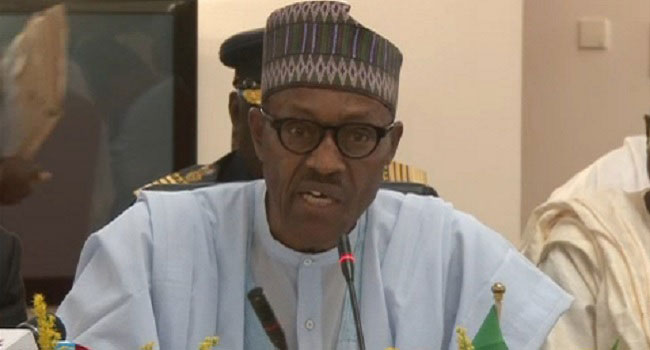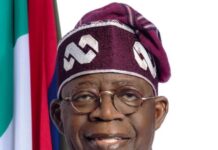PROTOCOLS
1. I am delighted to be present at this Opening Ceremony of the 2019 All Nigeria Judges Conference of Superior Courts, and to address this august gathering of Judges of the Nigerian Courts of record. I am grateful to the Chief Justice of Nigeria, Hon (DR) Justice Ibrahim Tanko Muhammad, CFR, for inviting me to this event.
2. This conference offers a platform for judges to reaffirm their constitutional role as the ultimate arbiters on constitutional and social issues. The role of Judges in any society cannot be over-emphasized, more so in a Constitutional democracy like ours.
3. Continuous constructive engagement among the three arms of government is essential in view of our Constitutional mandates to check and balance various government powers.
4. Given our common resolve to build a just Nigeria under the Rule of Law, Social Justice and Accountable Leadership, it is imperative that the leadership of the three arms of government must continue to share their views and communicate on a continuous basis. Furthermore, we must strive to retain public trust and confidence.
5. As you commence this conference today, let me remind My Lords, that in our bid to attract foreign investment into the economy, this Administration has made giant strides in the fight against corruption and insecurity.
6. Economic progress can only be sustained in an atmosphere of the Rule of Law where justice is guaranteed. I must therefore express my hope that this conference will achieve its objective of articulating interventions by which this Administration’s drive to improve transparency, security, and the expeditious adjudication of commercial, corruption related crimes including economic and financial crimes matters could be enhanced.
7. I will advise that the conference should, in its deliberations, consider how to create an efficient structure for the proposed special Crime Courts or the urgent designation of existing courts as Special Courts with competent and credible judicial officers in order to remove administrative bottlenecks in the judicial process.
8. The government has been committed to a number of justice sector reforms such as review of extant laws and enactment of new laws that will improve the lives of Nigerians.
9. Additionally, we have worked closely with the Chief Justice of Nigeria to ensure that judicial budgetary allocations are enhanced in view of the needs of the judiciary. I have strongly supported the increase in number of judges at High Courts, Appeal Courts and the Supreme Court in order to reduce the burden of the work placed on judicial officers. I will continue to do so.
10. Nevertheless, delay in justice delivery as well as the volume of cases on the dockets of courts still leaves much to be desired. Urgent reforms therefore remain imperative in the light of these challenges.
11. I will encourage the judiciary to undertake a critical review and assessment of their needs in terms of technology, competent administrative, judicial personnel and welfare as well as skills required to make the Nigerian judiciary more innovative and in tune with modern judicial approaches.
12. This is a journey that the executive arm has already started with the reform of the public service. It is time for the judiciary to adopt modern case management systems, initiate more expeditious case tracking and disposal systems and provide reward mechanisms for judges who maintain highest levels of integrity and efficiency.
13. I have signed the Administration of Criminal Justice Act, 2015 and the Correctional Services Act, 2019 into law, it is my hope that the judiciary will support the efforts of this government by ensuring their effective implementation. These laws will provide a comprehensive legal and institutional framework to tackle delays in the dispensation of justice, prison congestion, awaiting trial inmates, and non-custodial measures.
14. The Correctional Services law also seeks to bring Nigeria’s legal system and prison management procedures in line with international human rights standards. It is therefore my expectation that the judiciary will work closely with the Attorney General of the Federation, the heads of Prisons and other law enforcement agencies to actualize the objectives of these laws towards an improved criminal justice system.
15. We have, as a nation, taken giant strides in the consolidation of our democratic status by holding successful civilian-to-civilian transitions six times since 1999. This exercise has strenuously taxed the resilience not only of our people but also our democratic institutions, notably the judiciary.
16. I am proud to observe that the judiciary both before and after elections has improved in its ability to conclude election matters in a timely manner. There is still room for improvement and I urge the Chief Justice to initiate a study to understand the challenges of adjudicating election matters and to advise me on the steps that the executive can take to address those challenges.
17. We are committed to strengthening our democracy by honouring the dictates of the separation of powers among the three arms of government. In this regard, Section 124 (3) Constitution of the Federal Republic of Nigeria, 1999 (4th Alteration) and the Presidential Implementation Committee on Autonomy of State Legislature and State Judiciary, which I inaugurated last year has forwarded recommendations that will genuinely empower the Legislature and the Judiciary to carry out their respective constitutional roles without interference from the Executive.
18. Permit me to presume the continued cooperation of the Judiciary in achieving these mutually beneficial objectives in the overall interest of our country.
19. While wishing you successful deliberations, I have the privilege to formally declare the 2019 Biennial All Nigeria Judges Conference open.
20. I thank you all for your attention and may God bless the Federal Republic of Nigeria.
Federal Ministry of Information and National Orientation 2025. All Rights Reserved.





